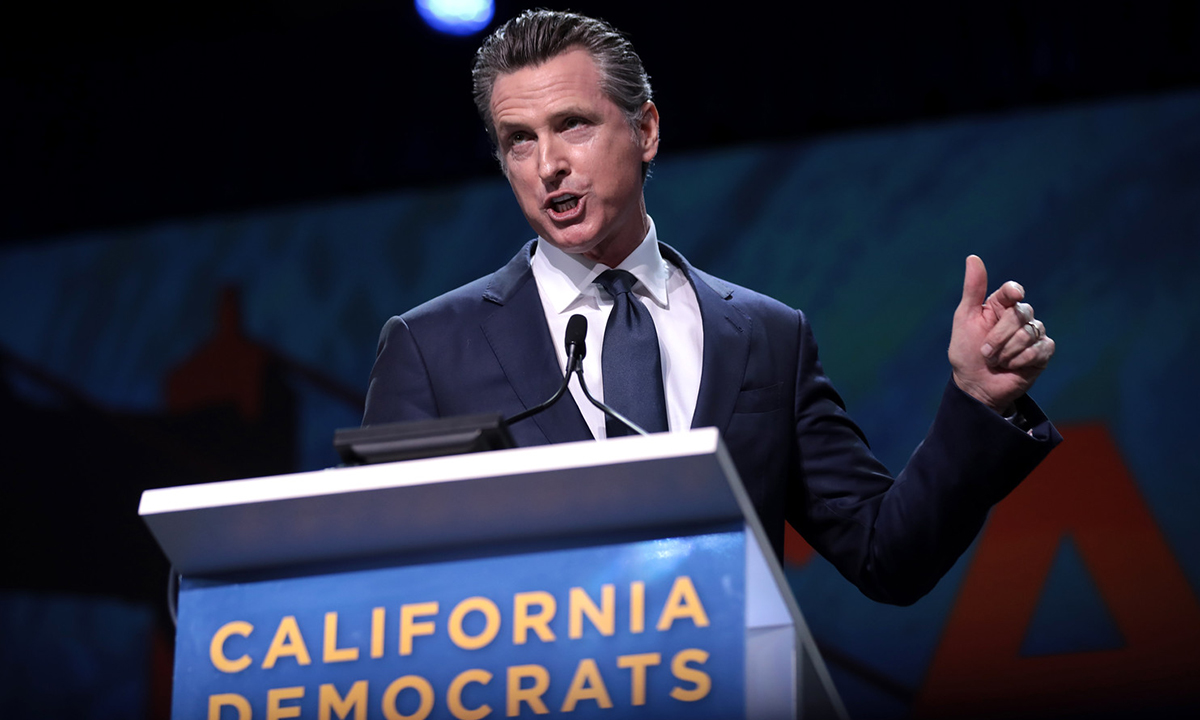Written by Julianne Foster
Gov. Gavin Newsom released his revised state budget proposal for 2020-2021 in light of facing a $54 billion deficit. He’s hoping to receive support from Californians in his decisions. “Together, we flattened the COVID-19 curve and saved lives,” said Newsom. “Now, we are confronted with a steep and unprecedented economic crisis.” The steep decline in projected state revenue has been brought about partly from the heavy toll California’s economy has taken from the COVID-19 pandemic.
Opinions on the new budget are divided with 43 percent in favor, 43 percent in opposition, and 14 percent reporting that they are unaware or uneducated on the subject. The division is seen through the parties as well, with 48 percent of Democrats, 31 percent of independents, and 26 percent of Republicans approving, while 38 percent of Democrats, 52 percent of independents, and 62 percent of Republicans are in opposition.
On the subject of tax increases, it was fairly obvious the opposing side was much larger than the group in agreement. Only one-third were in agreement with tax hikes, but a majority—60 percent of adults and likely voters—were in agreement that the budget should not include tax increases. According to these percentages, Democrats were far more likely to approve of the tax increase than Republicans or independents.
Gov. Newsom makes excuses for his imposing tax increases because “this is no normal year. And this no ordinary May revision.”
Democratic proponents of Newsom’s budget are hopeful that Californians will overlook receiving an increase in their taxes if it means keeping schools and social services from receiving serious budget cuts. Due to the pandemic, schools are already facing a demand to secure more funds to ensure the safety of returning students.
However, those opposed to the tax increases determine it would be unfair to place the burden of the state’s budget on voters, millions of whom are already struggling to keep a job, pay rent, or keep their businesses open. “To say that this is the time to raise taxes is utterly irrational and very dangerous,” said Susan Shelley of the Howard Jarvis Taxpayers Association. Voters already rejected a statewide school bond and several local bond measures in California’s March primary.
“Voters were already sending a message that they are taxed at the limit and they can’t pay anymore,” Shelley said. “This is an indication that voters in California are squeezed and they can’t pay anymore.”
The proposed rollback of Proposition 13 is the most controversial new revenue measure as it would lead to a significant tax increase on commercial property owners—most of whom are small business owners. Shelly believes this could result in further layoffs and heavily burden children with a large bill for any property they inherit.
24/7 Wall St. reviewed total tax collections as a share of income on a per capita basis to categorize the states depending on which had the lowest and highest tax burden. Using data from the U.S. Census Bureau’s 2017 Census of Governments, they determined California had the 14th highest tax burden. “Taxpayers in California spend 10.3% of their annual income on state and local taxes, a larger share than in most states,” reported USA Today.
With Californians already exorbitant tax rates and now their own individual financial crises from COVID-19, it seems inappropriate to try and withdraw more money from their shallow pockets. Gov. Newsom’s thinly veiled attempt to do so reveals the true intentions of him and his Democratic allies in the State Legislature.




